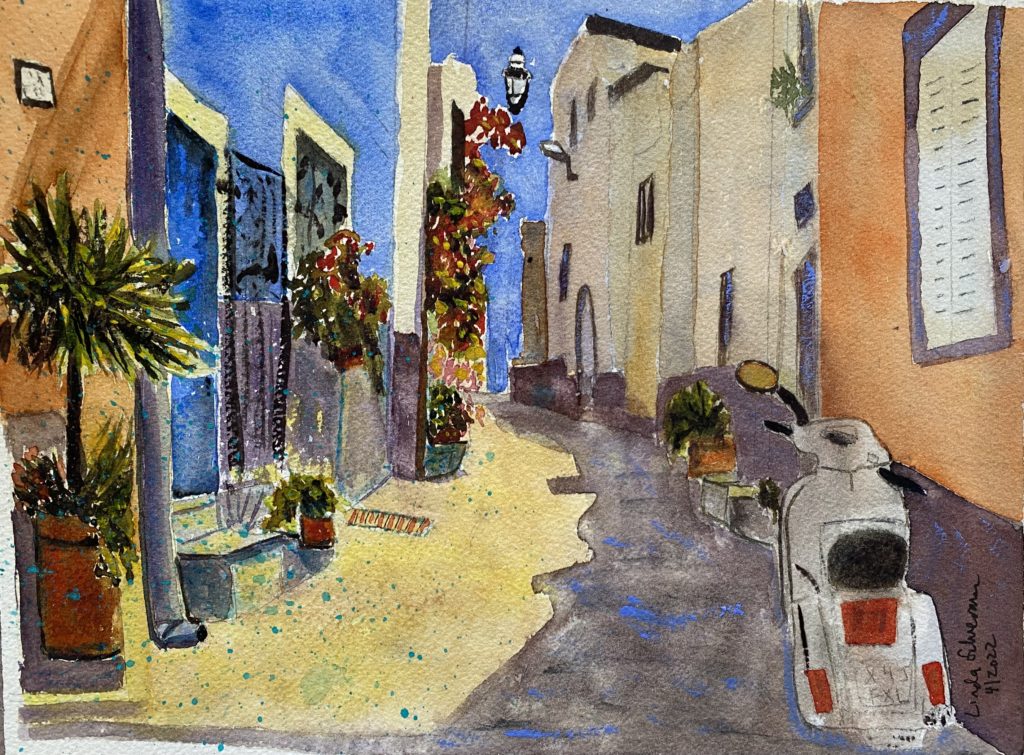
I got inspired to write this blogpost after listening to Meghan Markle’s inaugural “Archetype” podcast episode with Serena Williams. While the theme of the episode was women’s ambition, I was captured by Serena’s description of what her retirement from tennis means to her. She’s “retiring” because that’s the term used when formally leaving professional tennis, but really, she’s evolving into something new and wonderful.
This is how I view my transition since I left my Federal Government career. I “retired” from the US Department of Energy in 2018, meaning I met the eligibility to leave after 30 years with full benefits. I didn’t retire in the traditional sense. The term “retirement” is weighty, especially for those who are not elderly or infirm when they take the action to leave the traditional workforce. I wish there were a better term, since I made the decision to separate from government service to launch a new, hopefully productive, chapter.
I write this as many of my friends are either in or thinking about a major transition. Here are some lessons I can share from my last 4 years of evolution:
— Departing a job one has held for decades can feel risky even if exciting. Working for the Federal government for so long was a privilege but also kept me from a riskier path. It felt like the right time to embrace a new direction, even if I couldn’t fully envision what’s next. Just as Serena has. [Note: I am mindful that risk for me is less than for those without a pension.]
— Transition, especially if brought on by a stressful situation, invites introspection that we tend not to indulge in when things are status quo. This soul-searching, while distressing in the moment, propels us forward, allowing us to evolve more quickly, and usually for the better. I’ve found this over and over in my life, including in the months leading up to my decision to “retire” from my government position.
— I am grateful to those who told me it takes at least two years to adjust to not having a firm schedule. For the first time in my adult life, I would determine how I spent my Monday to Friday hours. Especially in the first days, I relished not having a structure imposed by a workplace. I quickly found that I needed to and could create a full and enriching schedule, even if I’m admittedly much less efficient than when I was so time constrained. I’m a work in progress as I continue to evolve what I am doing and learning.
I could not have anticipated most of the things I fill my time with now. While writing this blog was on my list, painting, angel investing (and learning about it), and volunteer service to my local government were not contemplated. For those worried about how you will spend your time in your next chapter, my experience is that you are likely to discover new areas and interests that you can not even imagine in the present. Expecting a period of transition helps in adjusting to any big change.
— The hardest part about not having a regular paying job is accepting a different sense of productivity. I don’t have externally imposed deadlines that help shape a sense of accomplishment. This has at times been a mind f**ck for me. It’s why I constantly create lists – to make sure I remember I have stuff to do and help me get unstuck when I question my sense of worth.
–People ask me all the time what I do all day, just as I had asked others during my working years. I’ve tried to be intentional about how I shape my time and efforts, with goals for my days and weeks, even if they are modest. I anchor my mornings with a long walk, and usually have a mental list of what I plan to do that day.
It can feel indulgent to be an independent actor, and I do have more time to lounge if I want to. I am incredibly grateful that I get to set my schedule, pursue new interests, enjoy seeing friends during the day, travel a lot, and no longer feel tied to the daily grind. I know I’m privileged to be able to do these things and feel driven to still make a meaningful contribution.
For those in or anticipating a transition, I recommend writing down thoughts (I love the Notes app on my iPhone) – areas or hobbies you want to explore, things you want to accomplish, etc. If you’re like me, you are unlikely to remember an enlightened thought or idea, so jot it down ASAP. Respect these thoughts as they form the foundation of your next or a future action, even if it’s quieting your mind when you have a momentary freak-out.
Above all, relish that we get to have these moments of reflection and the ability to transition and evolve. We may not be the GOAT that Serena is, but we have plenty of options to shape our future direction and impact.
Recommended Listens:
As referred to above, Meghan Markle’s conversation with Serena Williams in her Archetype podcast.
A wonderful, provocative conversation by Ezra Klein with Richard Powers, who evolved from being a lab scientist to a Pulitzer-Prize winning novelist. This conversation touches on mortality, animism, politics, old-growth forests, extraterrestrial life, Buddhism and beyond.


Great perspective & insights Linda!
Your article gave me an opportunity to reflect on my last few years of retirement. My initial reaction to retirement was about losing my identity. I have long cherished my work badges, because it gave me identity and access any time of the day and night to my work life. It also gave me direction, organization, and balance. Life outside of the work world was undefined and scary. But I learned that the skills you have built up throughout your whole career are transferable in new fields. New shorter term professional opportunities came by that presented itself in amazing ways. For me the long view is as you retire, you have two buckets before you. The one that was completely full when you worked, can remain full with volunteer or part-time work . The other bucket is all the things you are interested in doing. For me it is grandchildren, travel, books, cooking, needlepoint, sports, and bridge. After a few years in retirement status, the work bucket looks less interesting, and the personal interest bucket is pulling me in. This seems to be a natural progression, but I’m lucky to be able to choose. I’m now ready to work more on golf and learn bridge, which actually is easier said than done.
By the way, the watercolor is fantastic!
I related to this given the fact that I’m 2 years into my “retirement.” Retiring in a pandemic has its challenges, but I’m starting to see the light. Always love to read your insightful thoughts!
Very thoughtful and perceptive. It took two years for me to overcome the compulsion to schedule and measure accomplishments, and to learn to go with the flow in retirement. I’ve enjoyed indepth explorations in science and nature, and am now turning to art history. Classical music has always been part of my toolkit and still provides daily companionship.